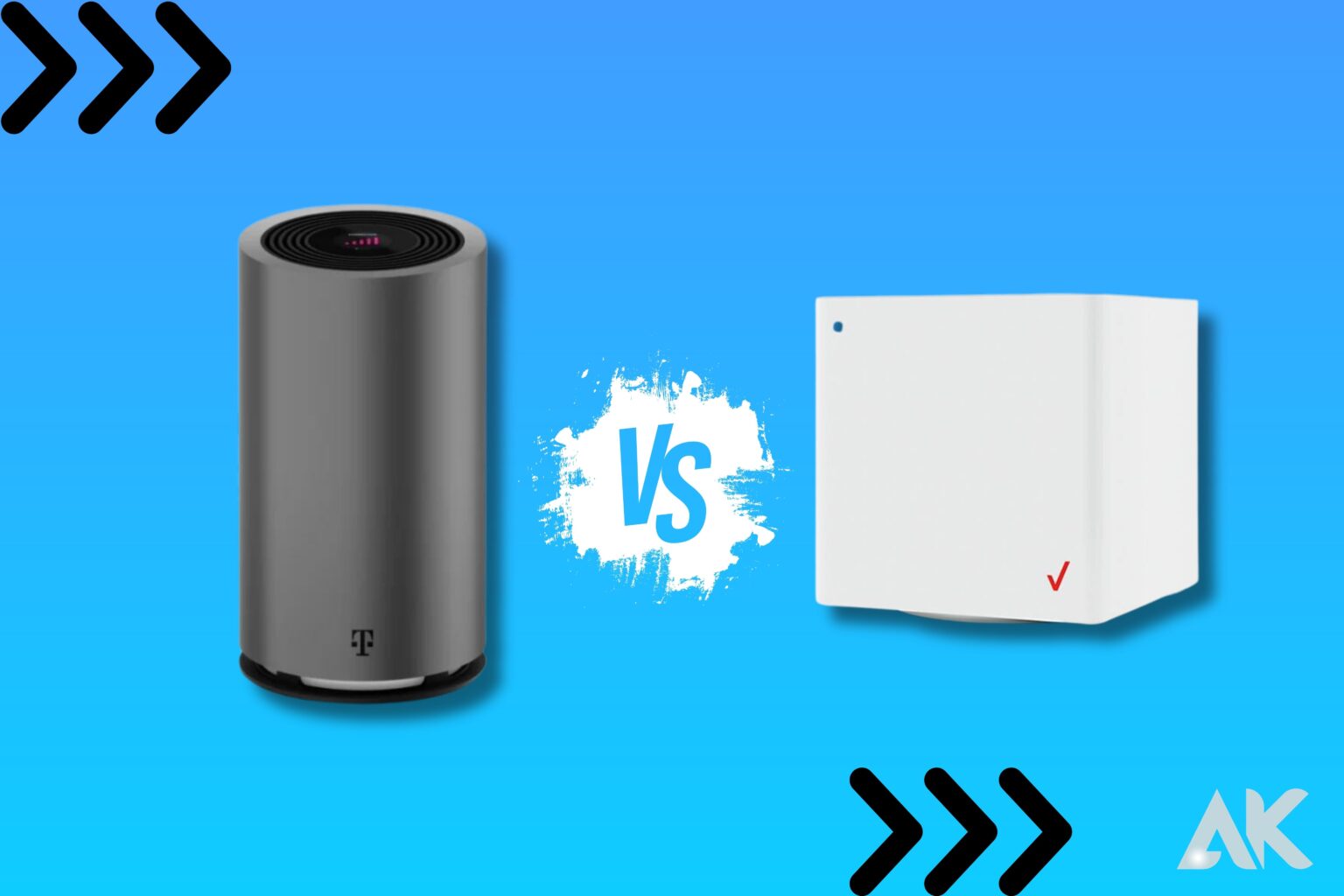Introduction
T-Mobile vs Verizon 5G Home Internet, It can be difficult to find affordable internet service if you reside in a remote area. There are probably only a few choices, and they might not be all that interesting. By using current cell towers to beam internet to your home, 5G home internet aims to address this issue.
Verizon and T-Mobile are the main rivals among the service providers taking advantage of 5G internet. These behemoths provide outstanding speeds and practically national networks at an amazing price. Which choice is best for you?
T-Mobile vs Verizon 5G Internet
The nationwide rollout of 5G, which offers millimeter-wave cellular speeds at higher, quicker frequencies than 4G LTE, is still ongoing. That’s fantastic news for our phones and other smart devices that need cellular frequencies to connect. It might change the way we live as well. One of the most exciting developments in residential internet in years is 5G, which has the potential to deliver speeds over the air that are nearly as fast as those of cable and fiber providers and adds the appeal of straightforward, user-friendly terms that do away with data caps, equipment fees, and other restrictions.
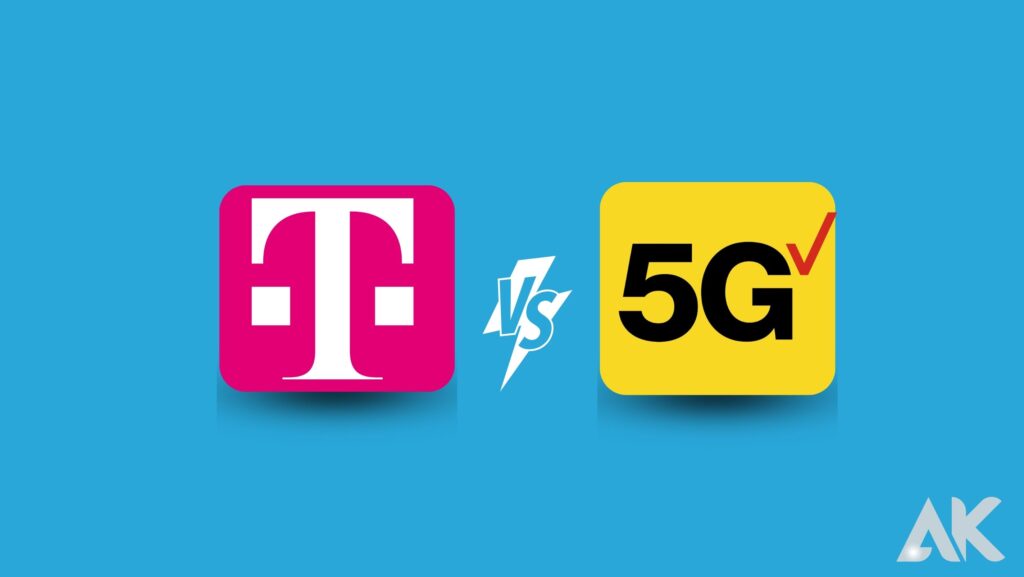
The first obstacle, though, is determining whether 5G home internet service is accessible at your address. Even if 5G signals are available everywhere, you might not be able to use them for residential broadband service. However, Verizon and T-Mobile are the companies putting in the most effort to increase the technology’s accessibility for usage with home internet. (Note: AT&T currently doesn’t provide a 5G home internet service; instead, it concentrates on fiber to connect households to the internet.) Each operator offers a distinct 5G fixed wireless home internet bundle that boasts quick speeds, clear terms, and an affordable price.
T-Mobile vs Verizon Home: Which is faster?
Even while 5G can achieve gigabit download speeds, neither provider’s residential internet package can deliver those top-end figures. Customers at T-Mobile, for instance, can anticipate “average download speeds in excess of 100Mbps,” with typical experiences ranging from 72 to 245Mbps. Why are they so low? T-Mobile Home Internet depends on its expanding 5G grid and current 4G LTE network to be available as soon as possible. Therefore, don’t anticipate a pure 5G experience.
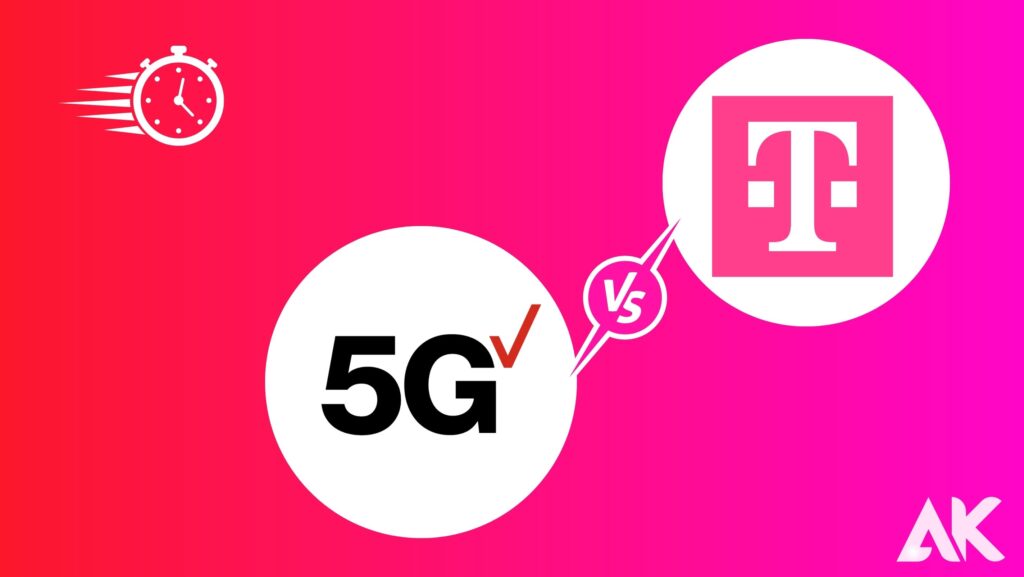
In the first sentence of the general terms for T-Mobile Home Internet, it is stated that “During congestion, Home Internet customers may notice speeds lower than other customers due to data prioritization.” Due to abuse, unusual use, network interference, or the inability to provide other users with excellent service, service may be slowed down, stopped, terminated, or restricted.
Conversely, Verizon advises its customers to anticipate typical download rates of about 300Mbps. The key driver of the improved speeds is Verizon’s reliance on its Ultra Wideband 5G network (and decreased use of its “4G LTE backup” network). Customers can receive speeds of up to 1,000 Mbps because to the combination of low-band, midband, and millimeter-wave technology.
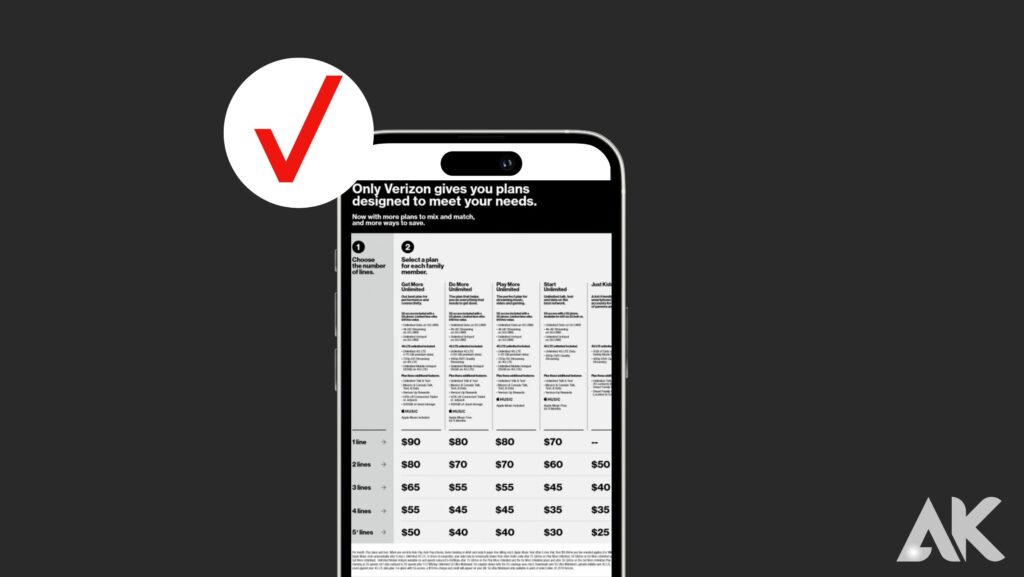
T-Mobile plans and pricing
Compared to Verizon, T-Mobile 5G Home Internet is easier to use. There is only one package, which costs $50 per month and offers speeds of 33–182 Mbps. For further savings—$20 off your monthly payment in this case—T-Mobile customers can combine home internet and cell service, just like Verizon customers can. This results in a monthly cost of just $30 for T-Mobile Home Internet, which is a wonderful offer for high-speed internet.
Verizon plans and pricing
Verizon provides the 5G Home and 5G Home Plus plans for its 5G home internet service. You are able to stream and browse the internet as much as you like with both options’ unlimited data. The price and speed are different.
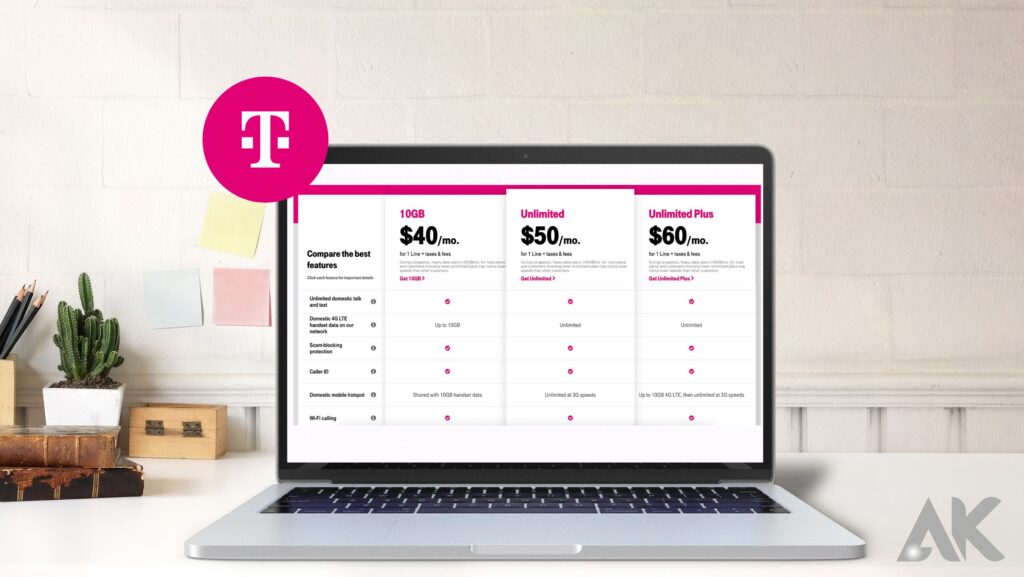
Verizon 5G Home offers speeds of up to 300Mbps and costs $60 per month; Verizon 5G Home Plus boosts the speed to 1,000Mbps for an additional $80 per month. As a result, many premium cable and fiber plans are directly competed with by 5G Home Plus, which is something we haven’t really seen in a wireless internet service previously. Undoubtedly, it is faster than the typical satellite service.
Verizon 5G and cell service bundles
Customers can bundle their TV and/or home phone services with their internet connection to receive discounts. You have the choice to combine mobile internet service with Verizon 5G because it is based on mobile internet technology.
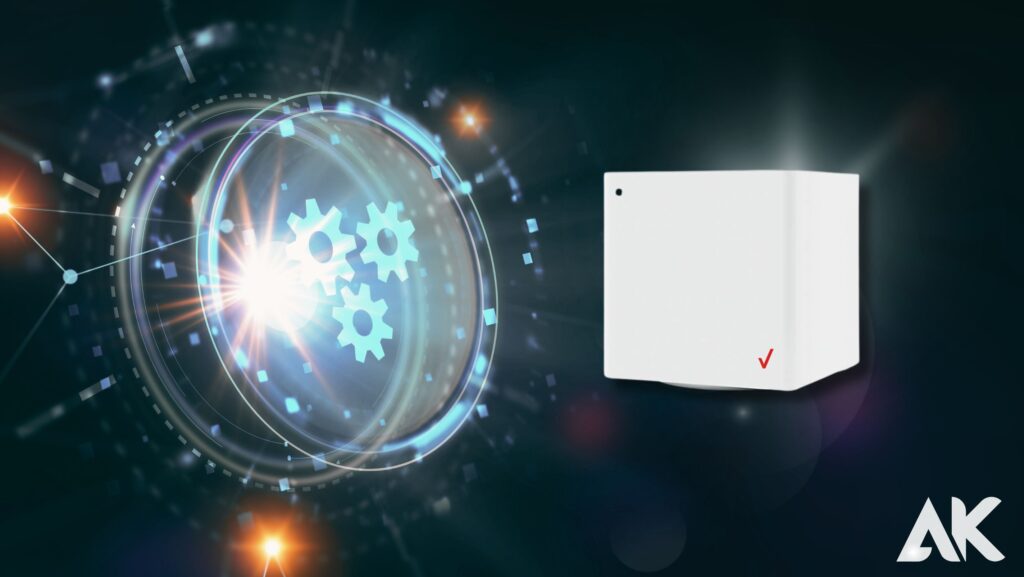
The cost of the 5G Home plan drops from $60 to $25 per month and the 5G Home Plus plan drops from $80 to $35 per month for customers with eligible Verizon unlimited phone plans. It is, by far, the best price available for 1,000 Mbps internet. These plans meet the requirements for the discounted rate:
- One Unlimited for iPhone
- 5G Play More
- 5G Get More
- 5G Do More
T-Mobile vs. Verizon 5G Home Internet features
The Home 5G plans from T-Mobile and Verizon include a plethora of extras in addition to internet service to entice you to join. Let’s examine some of the key characteristics of each provider.
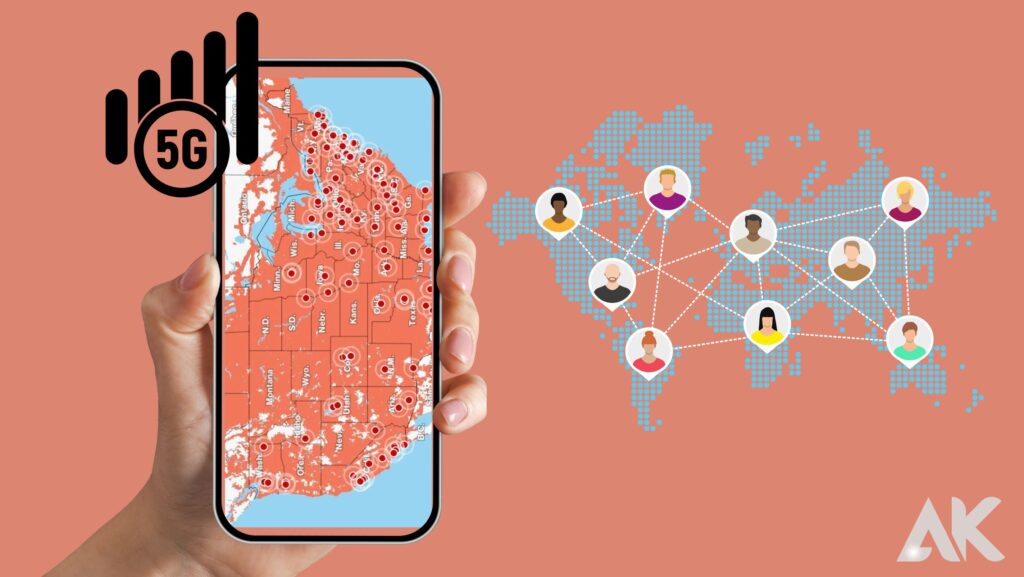
Home 5G reliability
The main novelty of 5G at home is its ease, yet on Verizon or T-Mobile, its dependability varies significantly. T-Mobile and Verizon’s home 5G plans have such wide download speed variations in part because the quality of your home 5G connection depends on the 5G cell towers in your area.
You might consistently obtain a speed that is equal to or more than the maximums in your plan if you are close to a tower. But if you’re close to a tower’s edge or in a densely populated location with plenty of mobile traffic, your speeds will be at the lower end of your provider’s estimations.
Before switching from your existing internet service provider, we advise making the most of Verizon and T-Mobile’s trial periods. If you’re unhappy with the 5G coverage in your location, both providers offer full money-back guarantees. Verizon has a 30-day warranty, compared to 15 days on T-Mobile.
Its Equipment
Gateway devices are used by T-Mobile and Verizon to deliver a 5G internet signal inside your house. Thankfully, T-Mobile and Verizon don’t charge equipment fees, so you won’t have to add rental fees to your internet account.
A 5G signal is received by 5G gateways, which are essentially a modem/antenna/Wi-Fi router combination, from the nearest T-Mobile or Verizon cell tower. However, unlike cable internet infrastructure, 5G gateways cannot be hidden on an office shelf or under a desk and must be placed close to a window in order to receive a strong signal.
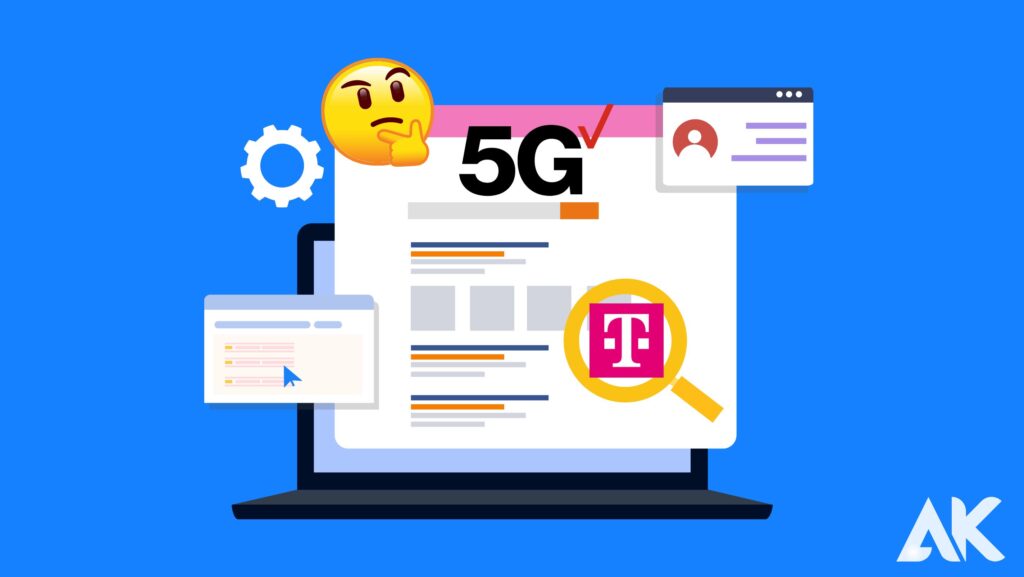
Which one is better for you?
Hopefully, our evaluation has helped you make a crystal-clear selection. However, if you’re still unsure about which 5G home internet service is best for you, here is a concise summary of the key details.
- Our Takeaway: For the majority of users, including cord-cutters and remote workers, Verizon’s faster speeds and affordable costs make it the ideal choice. For people living in more remote places, T-Mobile is a better alternative (or the only option) due to its countrywide availability.
- Plans and costs: Verizon offers considerable savings for current mobile users as well as two distinct speed tiers. You’ll get more value for your money in most cases. However, people who live in rural areas might be able to use T-Mobile’s universal plan.
- Availability: In this comparison, T-Mobile’s availability is its strongest suit. T-Mobile’s 5G service is available to nearly 30 million households, but Verizon only offers it in a small number of major cities.
- Speeds: Verizon easily triumphs in this category. It has industry-leading millimeter wave 5G home internet service. Verizon’s speeds can easily reach 200Mbps on the low end, while T-Mobile’s maximum speeds are approximately 180Mbps.
Conclusion
5G home internet service is a promising solution for those living in remote areas, offering speeds nearly as fast as those of cable and fiber providers. Verizon and T-Mobile are the main rivals in 5G internet, offering high-speed, clear terms, and low prices for their fixed wireless home internet packages. T-Mobile Home Internet, on the other hand, has a lower coverage area, aiming to reach over 30 million residences across the United States.
A more reasonable choice is T-Mobile Home Internet, which has a single bundle that costs $50 per month and has speeds ranging from 33 to 182 Mbps. Customers, however, can experience slower speeds because of congestion-related data prioritizing. Speeds of up to 1,000 Mbps are offered by Verizon’s Ultra Wideband 5G network in conjunction with their 4G LTE backup network.
T-Mobile offers a more affordable option, with a monthly cost of just $30 for T-Mobile Home Internet. Customers can combine home internet and cell service with their internet connection to receive discounts. Verizon 5G Home and 5G Home Plus plans offer speeds of up to 300Mbps and $80 per month, making it faster than traditional satellite services.
T-Mobile and Verizon’s Home 5G plans include equipment such as gateway devices, which deliver a 5G internet signal inside your home. However, the reliability of your home 5G connection depends on the 5G cell towers in your area. If you’re close to a tower or in a densely populated location with mobile traffic, your speeds may be at the lower end of your provider’s estimations.
To make the most of your 5G home internet experience, consider using trial periods from both providers. Verizon offers a 30-day warranty, while T-Mobile offers a 15-day warranty.
FAQ
Is Verizon 5G better than T-Mobile?
According to the research, T-Mobile’s service is superior for those living in rural areas even though Verizon’s service is quicker and less expensive. If you click on our links, we might get paid. Let’s get right to the point here: Compared to T-Mobile, Verizon’s 5G home internet provides faster and more consistent speeds.
Is Verizon 5G faster than T-Mobile 5G?
Compared to T-Mobile’s home 5G services, Verizon provides greater mobile bundle discounts and higher download speeds. However, before committing for the long term, we advise testing the 5G coverage in your house during the trial periods offered by both carriers.
How fast is T-Mobile’s 5G home internet?
Customers of T-Mobile 5G Home Internet receive reliable internet speeds and typically experience download rates between 72 and 245 Mbps, which is excellent for streaming video, web browsing, working from home, and the majority of online games.
What is the fastest 5G internet?
The fastest 5G internet plan available is Verizon 5G Home Internet Plus. For large homes and high-bandwidth activities like 4K streaming and downloading big files, it offers download speeds of up to 1,000 Mbps.
Which Verizon Internet is fastest?
The Verizon Fios speed cap is close to a billion bits per second. The promised download and upload speeds for its gigabit connection plan are 940 Mbps and 880 Mbps, respectively.

